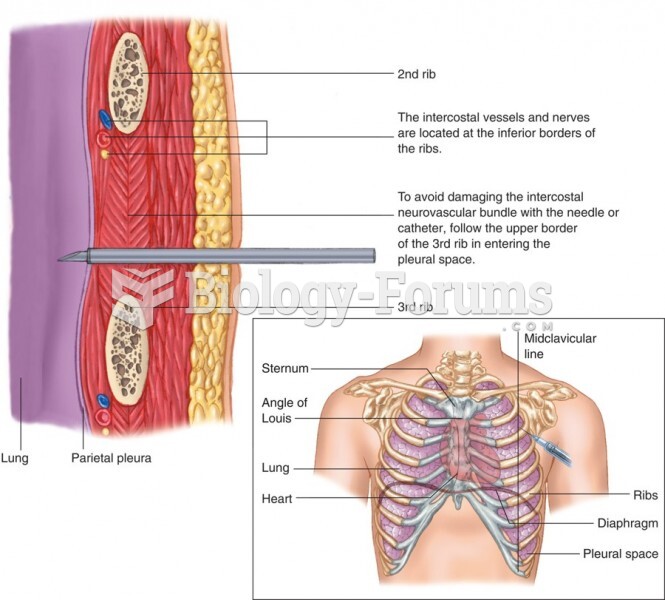|
|
|
Nearly all drugs pass into human breast milk. How often a drug is taken influences the amount of drug that will pass into the milk. Medications taken 30 to 60 minutes before breastfeeding are likely to be at peak blood levels when the baby is nursing.
Thyroid conditions cause a higher risk of fibromyalgia and chronic fatigue syndrome.
Drug-induced pharmacodynamic effects manifested in older adults include drug-induced renal toxicity, which can be a major factor when these adults are experiencing other kidney problems.
Signs of depression include feeling sad most of the time for 2 weeks or longer; loss of interest in things normally enjoyed; lack of energy; sleep and appetite disturbances; weight changes; feelings of hopelessness, helplessness, or worthlessness; an inability to make decisions; and thoughts of death and suicide.
The types of cancer that alpha interferons are used to treat include hairy cell leukemia, melanoma, follicular non-Hodgkin's lymphoma, and AIDS-related Kaposi's sarcoma.
 Photograph of an occupational therapist assisting a patient with learning independence in activities
Photograph of an occupational therapist assisting a patient with learning independence in activities
 Cystostomy. An artificial opening is made through the urinary bladder wall during this procedure. As
Cystostomy. An artificial opening is made through the urinary bladder wall during this procedure. As





